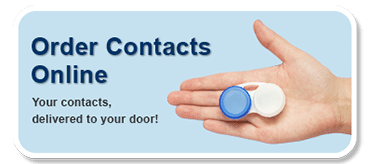Keeping Your Eyes Safe at Home
Every year, more than a million people injure their eyes at home. Although some of these incidents would happen regardless of how cautious the person is, the vast majority of eye injuries are preventable. There are several steps you can take, good eye-health habits you can form, and rules you can observe to keep your eyes safe. We all know that ordinary items such as pencils, pens, and scissors pose a threat to our vision. A trip or a slip can be extremely dangerous if you’re holding a pointy object, and most houses have sharp corners that you can walk or fall into. It’s important to have good safety practices in these immediately risky situations, but the more common causes of at-home eye injuries are cleaning chemicals and small pieces from toys.

- Always wear proper eye protection when you’re working on your car, mowing your lawn, working with sharp or pointy objects, using tools, or using any type of potentially dangerous chemical. Regular glasses do not offer anything resembling adequate protection. Use the appropriate glasses or goggles for the work you’re doing: safety glasses or dust goggles for working with wood, for instance, and chemical goggles when working with fertilizers, pesticides, or cleaning agents. Activities like welding and blazing require special goggles and/or helmets.
- Always wash your hands before touching your face and eyes, especially if you’ve been handling chemicals, small particles, or something unclean. This puts you at risk for not only eye injuries, but also eye infections.
- No matter what you’re doing, use adequate lighting. Even if you’re just getting up to use the restroom at night, don’t try to do it without fully lighting your path.
- Remove tripping hazards. Secure rugs, remove toys and shoes from areas where people walk, and make sure you have handrails near any stairs or drop-offs.
- Remove any noticeable debris, rocks, etc. from your lawn before mowing it.
- Do not mix chemicals together. Doing so can cause dangerous reactions, and if you aren’t a trained and educated chemist, you’re playing with fire (perhaps literally) when you mix cleaning agents. The reaction may cause dangerous, damaging chemicals to become airborne and harm your skin and eyes. Always follow manufacturer instructions on any chemicals you use.
Following these simple rules will greatly reduce your likelihood of needing medical attention for an eye injury. However, no precaution is 100% foolproof, and you will inevitably get dust, soap, an eyelash, or a million other things in your eye at some point. Usually, these foreign objects can be rinsed out with water or just worked out on their own. But it’s imperative to get immediate medical attention if you suspect your eye is seriously injured; if an object has penetrated your eye, or your eye has encountered a chemical that might be dangerous, we urge you to seek care at your nearest emergency room.
If you’re interested in any of the many services or products we offer, contact Georgia Eye Physicians & Surgeons to schedule an appointment today. Be sure to follow Dr. William Segal and Dr. Marc Lay on Facebook and Twitter for more eyecare information, fun facts, and the latest news and updates about eye health.












